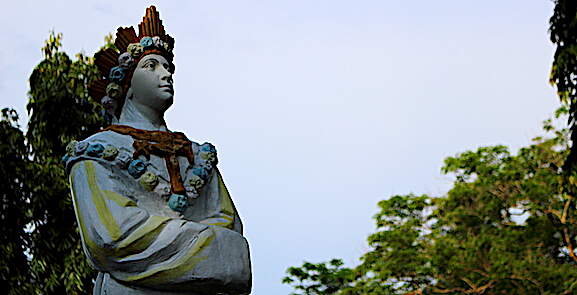
The Virgin Mary appeared at La Salette (French Alps) on September 19, 1946, on a Saturday late afternoon. American Jewish author Roy Schoeman (born 1951), who converted to the Catholic faith, comments:
The author offers as an explanation a free translation of "Lekha Dodi" (i.e., the Shabbat bride), which is a traditional Jewish song on Shabbat evening, where God invites Israel, the beloved (Dodi), to welcome the Shabbat personified in the feminine (the Shabbat queen) :
As a Jew I was struck and deeply moved when I read that Mary's words at La Salette were: "Six days I have given you to labor, the seventh I have kept for myself." For from a Jewish perspective it is very natural, almost inevitable to associate Mary in a special way with the Sabbath.
In Jewish tradition the Sabbath is seen as a bride, and is referred to as the "Sabbath Queen." And it is understood to be the forecourt of the Messianic Kingdom, a sort of taste of what is to come. The author offers as an explanation a free translation of "Lekha Dodi," a traditional Jewish song for the Shabbat dinner:
"Come, my Beloved.
Let us welcome Sabbath the Bride, Queen of our days.
Come, let us all greet Sabbath, Queen sublime,
Fountain of blessings in every clime.
Annointed and regal since earliest time,
In thought she preceded Creation's six days.
Come, my Beloved.
Let us welcome Sabbath the Bride, Queen of our days.Arise and shake off the dust of the earth.Wear glorious garments reflecting your worth.Messiah will lead us all soon to rebirth.My soul now senses redemption's warm rays.
Come, my Beloved.
Let us welcome Sabbath the Bride, Queen of our days.
Almost every one of these words could be sung ever so appropriately to the Queen of Heaven, the Queen of La Salette, the Blessed Virgin Mary!
Roy Schoeman
Adapted from https://salvationisfromthejews.com/justarticles.html